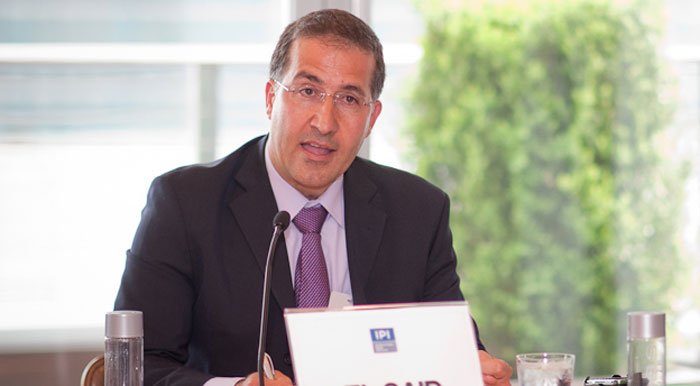
“What I wanted to find out with my research was whether deradicalization programs work—and from what I saw, they really do,” said Hamed El-Said, Manchester Metropolitan University Professor, at the launch of IPI’s new report Transforming Terrorists: Examining International Efforts to Address Violent Extremism. The report was co-authored by IPI Senior Policy Analyst Naureen Chowdhury Fink.
The May 3rd event included a panel discussion with the two co-authors and Richard Barrett, Coordinator of the Al-Qaida and Taliban Sanctions Monitoring Team. Eirik Øwre Thorshaug, former Deputy Minister of Justice of Norway, delivered the keynote address.
In his remarks Mr. Thorshaug introduced Norway’s 2011 Action Plan to Prevent Radicalization and Violent Extremism, which draws on his country’s experiences with combating violent extremism and applies them to more recent concerns about Islamist radicalization and transnational terrorism.
Mr. Thorshaug stressed the importance of openness to alternative views and ideas but underscored that the commission of a violent act, no matter what the ideological justification, could not be tolerated. He reiterated the importance of multilateral cooperation in addressing common challenges stemming from transnational terrorism, and urged greater transparency regarding deradicalization programs, though not to their detriment.
Though Transforming Terrorists focuses on the experiences of eight Muslim-majority countries visited by Mr. El-Said, it also draws on the cumulative experiences of countries in other regions confronted by the need to address violent extremism and persuade detainees or former combatants to disavow violent ideologies and actions. As Ms. Fink noted, these elicited a number of common lessons learned, and highlighted some critical challenges which should inform any “deradicalization” or “rehabilitation” initiatives undertaken by states.
Common challenges include the high costs associated with such programs; ethical and political questions regarding the provision of benefits to detainees; finding credible interlocutors; limited law enforcement capacities and poor prison conditions; and the integration of minority communities. Among the lessons learned is the importance of families, the cultural, social and political context of the programs; and prisoner treatment and human rights; and the need to address the broader social networks—including the Internet—as part of these efforts. The increasingly transnational nature of terrorism has called for greater cooperation among states and prompted several states to look to the UN for assistance. As Ms. Fink pointed out, several policy instruments, including the UN Global Counterterrorism Strategy and Security Council Resolutions 1267, 1373 and 1624, are applicable to support national deradicalization or counter-radicalization strategies. She highlighted a number of recommendations outlined in the report that discuss how the UN could exploit its comparative advantages and assist states wanting to develop deradicalization or rehabilitation programs.
Recent events in the Middle East and North Africa and the assassination of Osama bin Laden just two days before the report’s launch gave the panelists and audience an opportunity to discuss the continuing relevance of al Qaida and the violent ideologies and actions it has inspired.
Mr. Barrett noted that al Qaida’s ideology still resonates with a large number of people, and that the Facebook group “We Are All Osama Bin Laden” was gaining more than 2,000-3,000 people a day before it was removed. He concluded that it is especially important for the UN to continue to counter violent ideologies and to show the negative impact of this violence on communities, including on those which extremists purport to protect.
Ms. Fink pointed out that the mode of change adopted in places like Tunisia, Egypt and Yemen—nonviolent protest—and the demands for increased representation, civil liberties and socioeconomic opportunities, represented a challenge to the ideology of change through violent jihad propagated by al Qaida. Should these movements fail, she noted, al Qaida’s ranks may still swell, but the organization was placed in a defensive position regarding its objectives.
IPI Senior Vice President Edward Luck moderated the event. The overflow audience included diplomats, UN officials, practitioners and civil society representatives.
Related publications:
Transforming Terrorists: Examining International Efforts to Address Violent Extremism
The Death of Bin Laden: Whither Al-Qaida?







